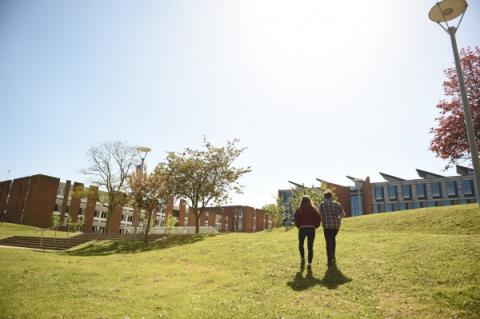Studying the media today means exploring global issues: the echo chambers of social media in the times of Trump and Brexit need analysis and understanding.
But too often, “global” implies a smooth, even connection of media around the world, like the “global internet”; whereas media are different in different places, affected by particular laws and cultures.
It is partly in response to this need that the School of Media, Film & Music at the University of Hong Kong (CUHK) which is also launching a twinned Global Communications Programme.
Top universities where you can study communication & media studies
In this collaboration, students at Sussex and at CUHK will take a degree at their respective universities and during their first year be put into virtual contact. Then in the second year, all the CUHK students on the Global Communications Programme will travel to Sussex and will study with the students on the Global Media and Cultures course. They will not only learn about the media but experience life as a University of Sussex student.
In the third year, all the students will travel to study together in Hong Kong for a year, where they will learn about life as a CUHK student. Finally, students will separate to their home university for their fourth year although they will still be in virtual contact.
In this way, we aim to ground our students’ ideas about global media through their experiences of media in Brighton and Hong Kong, along with study trips to London and Beijing. The collaboration gives students a comprehensive understanding of the development of the media industry in two different places as a way of understanding global media, cultures and communication.
Our hope is that students will gain greater understanding of two localised industries in Hong Kong and the UK, and be able to apply that knowledge to other similar digital media and communication cultures across the globe.
Student blogs and advice on the international experience
Further your career prospects by studying abroad
I understand this initiative as the story of the Octopus and the Key. While they are in some ways fundamentally different from each other, particularly in the location in which they exist, the Octopus and the Key are also the names of the travel cards of Hong Kong and Brighton. They are linked as technologies that were made with digital media and have created similar changes around the world in the way we live our lives.
What will students get out of this type of innovative international collaboration?
First and foremost, they will gain a world-class education in two research-intensive universities. They will gain a grounded experience of how the world is made through international links. Finally, they will gain a network of friends and colleagues that spans Hong Kong to the UK.
We also hope this collaboration will have many benefits for both universities. We will be sharing different teaching practices, creating research links and hopefully offering examples to other UK and international students of working together.
Ultimately, these degrees will offer a truly international educational experience and they will teach the meaning of globalism to the students that are involved.
Further details about the programme can be found at: http://www.com.cuhk.edu.hk/en-GB/programmes/undergraduate-programme/13-admission-tc/1325-glc-prog-tc
Tim Jordan is the head of the School of Media, Film & Music at the University of Sussex.

Comments